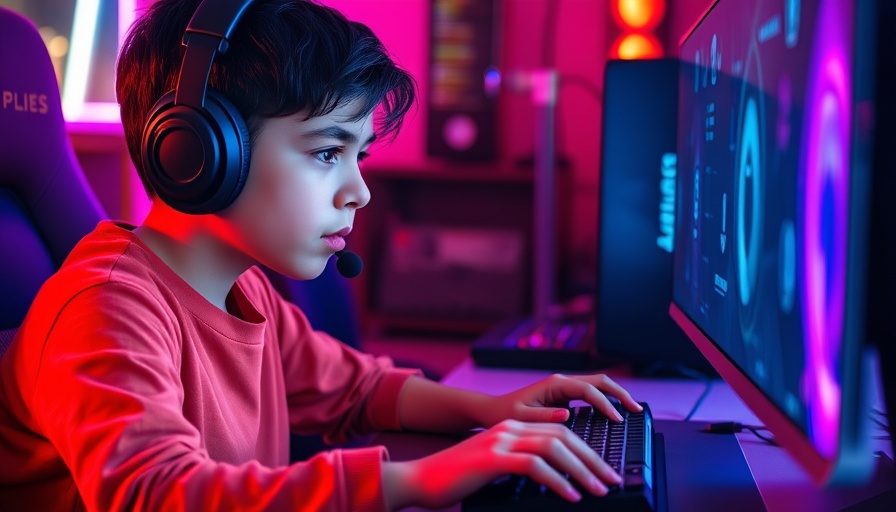
Understanding the Impact of Gaming on Teen Development
In our tech-centric world, gaming has become an integral part of many teenagers' lives. However, when not managed properly, it can lead to issues that derail their development. Parenting mistakes regarding gaming and screen time can profoundly impact teens, shaping their social skills, mental health, and self-regulation. By understanding these mistakes, parents can better navigate the challenges of raising children in an age dominated by screens.
Common Parenting Mistakes to Avoid
This insightful topic was explored in the Gaming the System podcast, where five key mistakes are discussed. Here are some common pitfalls that parents should avoid to ensure that their children don’t fall into the trap of excessive gaming and screen time:
- Over-Permissiveness: Allowing unlimited gaming can lead to addiction, hampering academic performance and social interactions.
- Lack of Communication: Not discussing gaming habits openly can create a disconnect between parents and teens, causing kids to hide their gaming activities.
- Ignoring Signs of Addiction: Failing to recognize when gaming becomes problematic can exacerbate teens' issues, leading to anxiety and depression.
- Neglecting Offline Activities: Not encouraging a balance of screen time with healthy, active pursuits can hinder physical health and social skills.
- Inconsistent Boundaries: Setting loose or fluctuating rules about gaming undermines their authority and confuses kids about what’s acceptable.
The Importance of Establishing Boundaries
Setting clear and consistent rules around gaming is vital. Boundaries help children understand limits and develop healthier relationships with technology. As discussed in the podcast, incorporating gaming schedules that include breaks and encouraging device-free family activities fosters a more balanced lifestyle.
The Role of Open Communication
Engaging your teens in dialogue about their gaming habits is crucial. It opens the door to understanding their interests and the appeal of gaming. This communication also provides parents with an opportunity to share their concerns and guide children toward responsible gaming.
Encouraging Healthy Relationships with Screens
The podcast emphasizes the significance of helping children develop a healthy relationship with screens. This can be achieved through:
- Establishing tech-free zones in the home.
- Modeling healthy screen usage.
- Promoting offline hobbies and sports that encourage teamwork and social interactions.
Future Predictions and Trends
As technology continues to evolve, the gaming industry will likely see an increased focus on parental control solutions and healthy gaming frameworks. These tools will empower parents to monitor gameplay effectively and foster better habits for their children. Moreover, the dialogue surrounding mental health awareness related to gaming and screen time is expected to grow, leading to comprehensive strategies for both parents and children.
Actionable Insights for Parents
Parents need to proactively engage in this digital age. This means not only setting limits but also understanding the games’ content and encouraging tech breaks. Tools provided by organizations like Game Quitters can be invaluable for parents seeking guidance on addressing potential gaming addiction.
Summary of Valuable Insights
In conclusion, understanding the impact of gaming on teens is crucial for modern parenting. By avoiding common mistakes and fostering an open, communicative relationship, parents can guide their children to develop healthy habits that benefit their mental, emotional, and social development.
Interested in making a change in your family's gaming habits? Consider reaching out to experts and exploring resources dedicated to gaming addiction recovery and screen management. By taking informed action, we can create a healthier environment for our children to thrive in.
 Add Row
Add Row  Add
Add 




Write A Comment